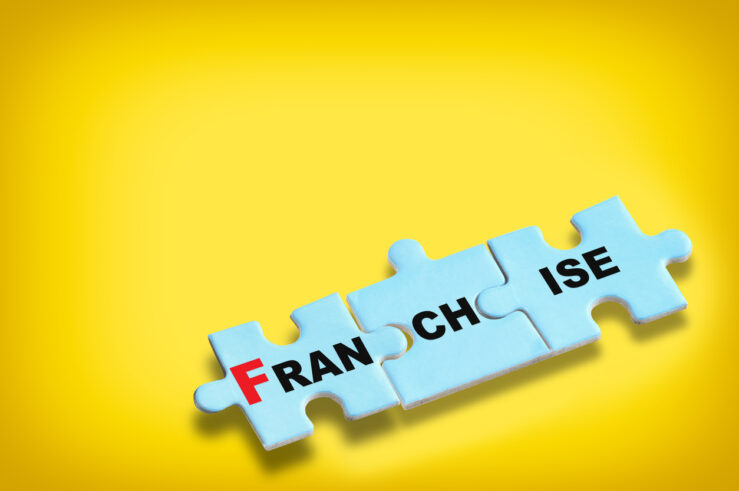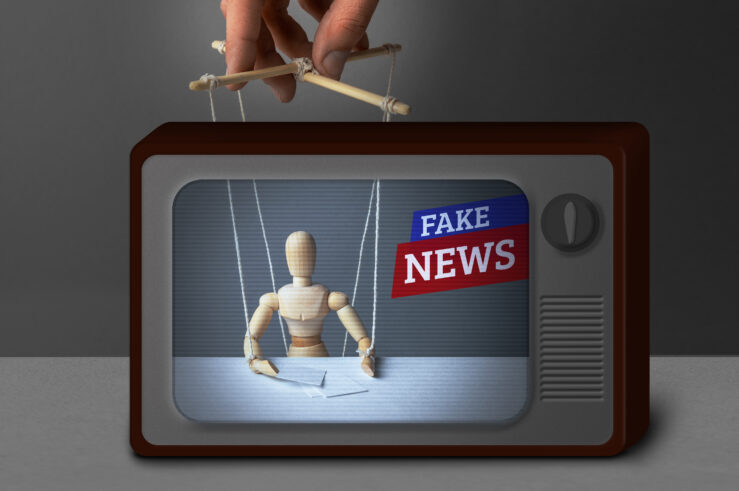Showing results for: “100% Pass 2024 UiPath Marvelous UiPath-ADPv1 Latest Exam Forum 💿 Search for ➥ UiPath-ADPv1 🡄 and download it for free on ➽ www.pdfvce.com 🢪 website 🏬New UiPath-ADPv1 Test Dumps”
Why Competition Enforcers’ Annual Roundtable Should Focus on Competition Advocacy and Combating Anticompetitive Market Distortions
Spring is here, and hope springs eternal in the human breast that competition enforcers will focus on welfare-enhancing initiatives, rather than on welfare-reducing interventionism that fails the consumer welfare standard. Fortuitously, on March 27, the Federal Trade Commission (FTC) and U.S. Justice Department (DOJ) are hosting an international antitrust-enforcement summit, featuring senior state and foreign ... Why Competition Enforcers’ Annual Roundtable Should Focus on Competition Advocacy and Combating Anticompetitive Market Distortions
Biweekly FTC Roundup: Throwing Stones in Glass Containers Edition
In February’s FTC roundup, I noted an op-ed in the Wall Street Journal in which Commissioner Christine Wilson announced her intent to resign from the Federal Trade Commission. Her departure, and her stated reasons therefore, were not encouraging for those of us who would prefer to see the FTC function as a stable, economically grounded, ... Biweekly FTC Roundup: Throwing Stones in Glass Containers Edition
Is the FTC Threatening Efficient Franchise Relationships?
Franchising plays a key role in promoting American job creation and economic growth. As explained in Forbes (hyperlinks omitted): Franchising as a business institution is oriented toward reducing economic inefficiencies in commercial relationships. Specifically, economic analysis reveals that it is a potential means for dealing with opportunism and cabining transaction costs in vertical-distribution contracts. In ... Is the FTC Threatening Efficient Franchise Relationships?
Reining in Digital Competition to No Good End: Will AICOA and OAMA Rise from the Grave?
The 117th Congress closed out without a floor vote on either of the major pieces of antitrust legislation introduced in both chambers: the American Innovation and Choice Online Act (AICOA) and the Open Apps Market Act (OAMA). But it was evident at yesterday’s hearing of the Senate Judiciary Committee’s antitrust subcommittee that at least some ... Reining in Digital Competition to No Good End: Will AICOA and OAMA Rise from the Grave?
Twitter v. Taamneh and the Law & Economics of Intermediary Liability
The Senate Judiciary Committee’s Subcommittee on Privacy, Technology, and the Law will host a hearing this afternoon on Gonzalez v. Google, one of two terrorism-related cases currently before the U.S. Supreme Court that implicate Section 230 of the Communications Decency Act of 1996. We’ve written before about how the Court might and should rule in ... Twitter v. Taamneh and the Law & Economics of Intermediary Liability
No, Mergers Are Not Like ‘The Ultimate Cartel’
There is a line of thinking according to which, without merger-control rules, antitrust law is “incomplete.”[1] Without such a regime, the argument goes, whenever a group of companies faces with the risk of being penalized for cartelizing, they could instead merge and thus “raise prices without any legal consequences.”[2] A few months ago, at a ... No, Mergers Are Not Like ‘The Ultimate Cartel’
How Will the Law Deal with AI Getting Facts Wrong?
It seems that large language models (LLMs) are all the rage right now, from Bing’s announcement that it plans to integrate the ChatGPT technology into its search engine to Google’s announcement of its own LLM called “Bard” to Meta’s recent introduction of its Large Language Model Meta AI, or “LLaMA.” Each of these LLMs use artificial intelligence ... How Will the Law Deal with AI Getting Facts Wrong?
What Transmission Markets Can Learn from the FCC’s Pole-Attachment Problem
Large portions of the country are expected to face a growing threat of widespread electricity blackouts in the coming years. For example, the Western Electricity Coordinating Council—the regional entity charged with overseeing the Western Interconnection grid that covers most of the Western United States and Canada—estimates that the subregion consisting of Colorado, Utah, Nevada, and ... What Transmission Markets Can Learn from the FCC’s Pole-Attachment Problem
Biweekly FTC Roundup: Total Drama Island Edition
In a Feb. 14 column in the Wall Street Journal, Commissioner Christine Wilson announced her intent to resign her position on the Federal Trade Commission (FTC). For those curious to know why, she beat you to the punch in the title and subtitle of her column: “Why I’m Resigning as an FTC Commissioner: Lina Khan’s ... Biweekly FTC Roundup: Total Drama Island Edition
Mergers and Innovation: DOJ and FTC Take Heed
Economists have long recognized that innovation is key to economic growth and vibrant competition. As an Organisation for Economic Co-operation and Development (OECD) report on innovation and growth explains, “innovative activity is the main driver of economic progress and well-being as well as a potential factor in meeting global challenges in domains such as the ... Mergers and Innovation: DOJ and FTC Take Heed
No, Chevron Deference Will Not Save the FTC’s Noncompete Ban
The Federal Trade Commission (FTC) announced in a notice of proposed rulemaking (NPRM) last month that it intends to ban most noncompete agreements. Is that a good idea? As a matter of policy, the question is debatable. So far as the NPRM is concerned, however, that debate is largely hypothetical. It is unlikely that any ... No, Chevron Deference Will Not Save the FTC’s Noncompete Ban
State-Mandated Digital Book Licenses Offend the Constitution and Undermine Free-Market Principles
Various states recently have enacted legislation that requires authors, publishers, and other copyright holders to license to lending libraries digital texts, including e-books and audio books. These laws violate the Constitution’s conferral on Congress of the exclusive authority to set national copyright law. Furthermore, as a policy matter, they offend free-market principles. The laws interfere ... State-Mandated Digital Book Licenses Offend the Constitution and Undermine Free-Market Principles
















